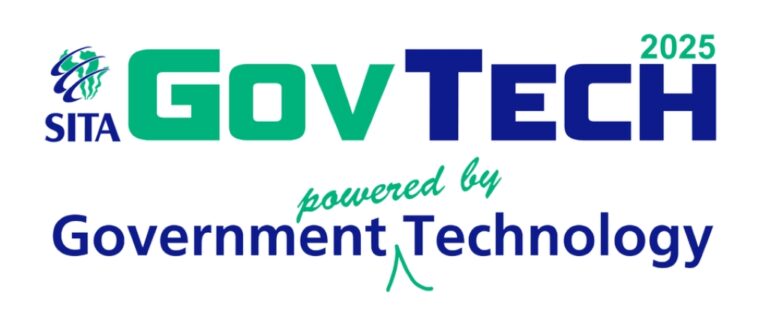South Africa’s municipalities are caught in a cycle of service delivery protests, audit failures and declining public trust. Yet, a tool designed to help break this cycle is often sidelined as a compliance burden. That tool is the Municipal Standard Chart of Accounts (mSCOA).
What is mSCOA? It is a system developed by National Treasury to create a standard way for all municipalities to record, classify and report their financial information. Its purpose is to improve the quality, consistency and comparability of financial data across municipalities.
At its core, mSCOA ensures that everything from budgeting to financial reporting is done in the same structured way, making municipal finances transparent and easier to manage.
Too often, mSCOA has been dismissed as a finance department concern. But it was never meant to be just about compliance. It is a strategic tool that, if embraced properly, can transform how municipalities plan, deliver services and build public trust.
National Treasury’s current work to regulate 14 core municipal business processes (including budgeting, supply chain management and asset management) represents the next step in mSCOA’s evolution: from a financial reporting exercise to a central engine for effective local governance.
This is a clarion call for mayors, municipal managers and all directors to finally see mSCOA for what it is: a shared opportunity to build trust and accelerate delivery.
The evidence of its transformative power is no longer theoretical.
As demonstrated by municipalities such as Polokwane, mSCOA’s segments provide a multi-dimensional language that speaks to every part of the organisation.
The project segment speaks directly to engineers and asset managers, allowing for precise tracking of infrastructure projects. The region segment empowers councillors and communities by providing a clear view of expenditure and outcomes in every single ward. The funding segment offers the entire executive team a clear-eyed view of fiscal viability, moving us from asking. “Did we comply?” to, “Are we effective?”
This shift is profound. The regulation of these business processes will force the integration of strategy (the Integrated Development Plan, or IDP), budgeting and performance management (the Service Delivery and Budget Implementation Plan, or SDBIP) into a single, coherent cycle.
This integration kills two birds with one stone: it creates the elusive “one version of the truth”, and it eliminates the debilitating reporting fatigue that plagues our municipal officials. Imagine a real-time dashboard reflecting the true health of the municipality, replacing stacks of contradictory spreadsheets. This is within reach.
However, as a recent webinar poll starkly highlighted, the biggest barriers to this bright future are not technical, but human. Resistance to change and lack of staff capacity were identified as the primary obstacles. This confirms a universal truth: you can have the most compliant software system money can buy, but without the right people and processes, it is a sports car parked in the driveway.
The move to regulate business processes is a golden opportunity to address this exact failure. It forces us to look up from our spreadsheets and look at our organisations.
The prescription for success is clear and draws from the practical lessons of those leading the charge:
Leadership ownership – the municipal manager and mayor must be the chief advocates, not passive observers. mSCOA cannot be a finance project; it is an organisation-wide transformation that demands political will and cover.
This regulation makes mSCOA undeniable, providing a mandate and a clear plan that leaders can rally behind.
Breaking silos – this means reconstituting dormant mSCOA steering committees to include not just finance, but also IT, performance management, asset management, and operational departments such as procurement and HR.
The Eastern Cape Provincial Treasury has provided a masterclass in this coordinated approach, employing dedicated champions in each district and fostering relentless coordination. Success is a function of breaking down internal walls.
Investing in capacity – the wealth of materials provided by National Treasury, including detailed process manuals and system specifications, are themselves training tools.
As Silma Koekemoer, Doctor of Philosophy from Nelson Mandela University, has emphasised, these are designed for both financial and non-financial staff. Continuous training is the antidote to the capacity constraint.
Furthermore, the regulatory clarity justifies critical investment in modernising fragmented IT systems and integrating data platforms, providing a clear benchmark against which to measure current capabilities.
Using the data – too often, mSCOA data is used only to prepare reports for National Treasury. This is like using a smartphone only to make phone calls. Its true value lies in tracking monthly performance, adjusting budgets mid-year and informing council decisions. This enables municipalities to track spending down to a specific project in a specific ward – making “ghost projects” a thing of the past.
For municipalities that have struggled to keep up with mSCOA implementation, this regulatory shift is not a threat, it is a definitive blueprint and a chance to reset. It provides the clarity and uniformity we have lacked, moving the conversation from, “How do we interpret the requirement?” to “How do we master the process?”
It also arms municipal officials with a clear set of requirements for their software vendors and consultants, allowing them to be held accountable for delivering systems that enable these critical processes, not just technically comply with them.
The path to victory, from vision to tangible service delivery, is paved with credible data. The regulation of these 14 processes provides the essential guardrails on that path. The challenges of change management remain very real, but they are now challenges we face with a clear map and a common goal.
This is our shared opportunity. It is a chance to move beyond compliance and use data to tell a new story about local government – a story of transparency, accountability and tangible progress.
The framework is no longer a constraint; it is the powerful enabling tool it was always meant to be. It is now up to local government to depress the accelerator and use mSCOA to drive the change our citizens so desperately need.
Let’s not waste this roadmap.




